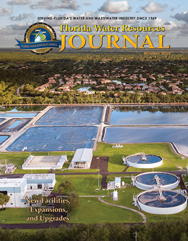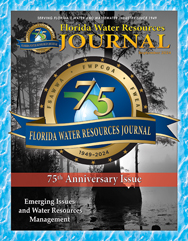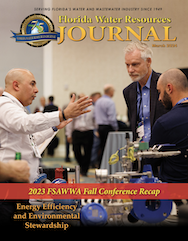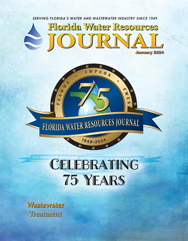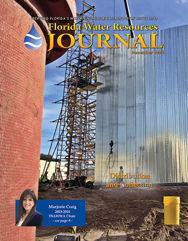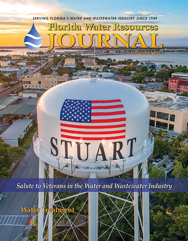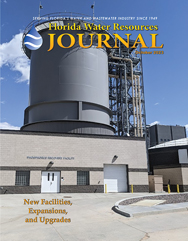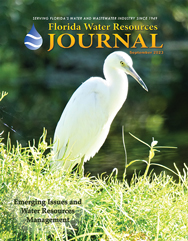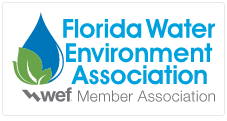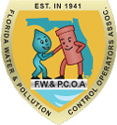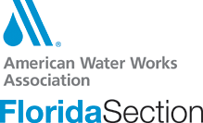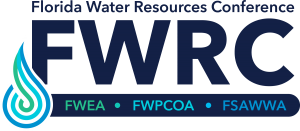EPA Settles Stormwater Case, Protecting Water Quality in Washington, D.C.
U.S. Environmental Protection Agency (EPA) announced that TPWR Developer, LLC, CBG Building Company LLC, and Bowman Consulting DC have settled alleged violations of regulations designed to protect America’s waterways from polluted stormwater runoff.
In an administrative consent agreement with EPA, the companies have agreed to pay a $27,000 penalty and implement a supplemental environmental project (SEP), to settle alleged Clean Water Act violations involving stormwater runoff from the Parks at Walter Reed construction site to Rock Creek and downstream waterways.
The Parks at Walter Reed is a multi-use development construction site in Washington, D.C., consisting of apartment and commercial spaces, located on the former Walter Reed Army Hospital grounds.
Uncontrolled stormwater runoff from construction and industrial sites often contains sediment, oil and grease, chemicals, nutrients, and other pollutants. The Clean Water Act (CWA) requires owners of certain construction and industrial operations to obtain a permit before discharging stormwater runoff into waterways. These permits include pollution-reducing practices, such as runoff reduction measures, spill prevention safeguards, material storage and coverage requirements, and employee training.
In the consent agreement, EPA cited the companies for failing to have the required National Pollutant Discharge Elimination System (NPDES) permit coverage for stormwater discharges, in violation of the CWA. To correct these violations, the companies submitted notices of intent for coverage under EPA’s NPDES construction general permit, which were approved by EPA.
In addition to the penalty, the companies will also spend at least $40,000 to implement a SEP in Rock Creek Park that will help protect the Hay’s Spring amphipod, the only endangered species in the D.C. area. The companies will help restore the amphipod’s spring habitats, revegetate social trail entrances, and plant trees and plants native to Rock Creek Park to provide stabilization and tree cover. This project will be performed with oversight from the National Park Service.
For more information about EPA’s stormwater program, visit www.epa.gov/npdes/npdes-stormwater-program.
Global Water Center Receives Nearly $500K From The Coca-Cola Foundation to Help Decrease Worldwide Water Poverty
The Global Water Center has received two grants worth a total of $499,439 from The Coca-Cola Foundation to support multiple initiatives that will utilize training, technology, and relationships to create sustainable, local solutions for water problems worldwide.
“The Coca-Cola Foundation’s generosity has significantly accelerated the Global Water Center’s ability, and that of our partners, to help more people have access to safe and reliable drinking water,” said Thomas Johnston, chief executive officer of the Global Water Center. “This grant will allow the Global Water Center to more-effectively share knowledge and resources with individuals, organizations, and governments that will strengthen their ability to deliver safe water where it is most needed.”
Initially, The Coca-Cola Foundation awarded the Global Water Center with a grant of $349,939 to provide solar-powered water systems (SPWS) training to government engineers and consultants from the Rural Drinking Water and Sanitation Department in Karnataka, India. The GWC’s training method involves equipping master trainers with the skills to train 300 to 500 engineers who will go on to train thousands of their colleagues in SPWS. This will support the government of Karnataka’s ability to achieve its goal of supplying safe water to the more than 60 million people in the state. Then The Coca-Cola Foundation gave the Global Water Center an additional $149,500 to support the delivery of online courses, create new capacity building material, and provide technical assistance. In 2024, the funding will expand the Global Water Center’s courses in three ways:
-The delivery of each solar-powered water system course (SPWS 101 and 201) in English and French.
– The translation of the two existing SPWS courses into Spanish, enabling these courses to reach new global audiences.
– The development and design of a SPWS operations and maintenance guide, which will equip operators with the ability to sustainably deliver safe and reliable water.
Additionally, the $149,500 grant will support technical assistance to The Coca-Cola Foundation’s implementing partners who are designing, installing, and operating rural water systems.
Through the partnership of The Coca-Cola Foundation, the Global Water Center will rapidly expand its courses and technical assistance to address water scarcity and energy challenges in regions where people have limited access to safe and reliable water. Ultimately, the funding will be used to help decrease water poverty worldwide.
About the Global Water Center
The Global Water Center believes everyone deserves access to safely managed water. As the go-to resource for the rural water sector, its safe water training courses have reached people in 81 countries. In addition to training, it also uses technology to make water projects effective and reliable. All of its efforts are rooted in collaboration with nonprofits, governments, and other entities to solve the global water crisis.
About The Coca-Cola Foundation
The mission of The Coca-Cola Foundation is to make a difference in communities around the world where The Coca-Cola Company operates and where its employees live and work. It support transformative ideas and institutions that address complex global challenges and that leave a measurable and lasting impact. Its giving is focused on sustainable access to safe water, climate resilience and disaster risk preparedness and response, economic empowerment, and causes impacting its hometown community. Since its inception in 1984, The Coca-Cola Foundation has awarded grants of over $1.5 billion in service of its mandate to strengthen communities across the world.


